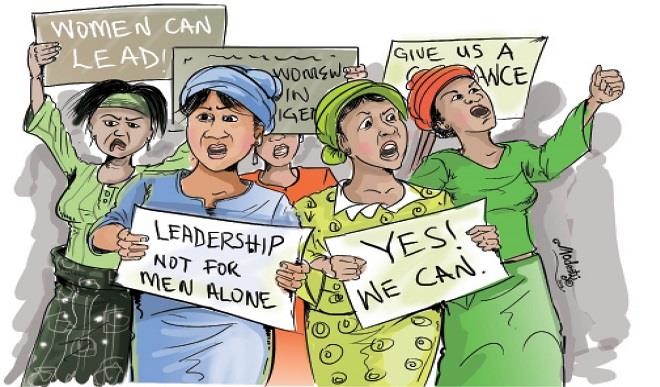
The need for women to be active in politics and peaceful electoral process continues to be of interest to many women across Nigeria. The women Situation Room Nigeria (WSRN) is one group edging to champion this struggle.
The role of women in politics cannot be over emphasised, said the WSRN during a press conference it hosted recently.
Nigerian women constitute about half of the population, and they are found contributing their quota to development in all facets of life.
Yet, they are discriminated against or marginalised in the areas of politics and governance. Some experts blame this development on culture, traditional practices, religion or the notion that women shouldn’t be involved in politics.
Since 1999, women have been sidelined in almost all levels of governance and in the decision making process shaping growth of the nation. Despite them being relegated to the background and the difficulties those in politics face, many women remain ambitious and strive to make their voice heard in the affairs of the nation.
In 2002, women represented only three percent of those elected. In 2007, that jumped to seven percent and, in 2011, it was five percent. The general elections of March 28, 2015, saw few women emerging as candidates after political parties’ primary polls.
The statistics show decline in number of women participating in electoral processes since 2002.
The South-west coordinator of the WSRN, Bridget Osakwe, laments that there was no woman candidate for the governorship election in Edo State, saying that her group hopes to get many woman to contest elections in future. However, she says that the WSRN is not partisan, but just making women realise need to actively participate in politics.
She said that the speaker of Edo State is a woman, which is a good development, adding: “One area of notice in the 2015 elections is the fact that most of the voters are made up of women, in urban and rural areas. This goes to show that the perception of women not getting involved in electoral processes is gradually getting eradicated.”
Speaking, Joy Ada Onyesoh, the group’s national coordinator, said: “The group is geared toward playing five key roles which will include connecting people who share passion for peaceful electoral process and women’s participation in all level of political processes, advocate for women’s political empowerment, bringing to light women’s stories of leadership and resilience, convene nonpartisan political and civil dialogue between civil society, government and other groups on policies related to women’s participation in the electoral process.”
She says that the group’s programme includes building capacity of women to participate in electoral process in Nigeria and have an all-female observer’s team that will observe elections in Nigeria and other African countries with a gender perspective.
She adds that the WSRN looks to create awareness on the WSRN App, training of geo-political zone and state coordinators, engagement of political parties and media, youth, women groups, forming partnerships and networking.
According to her, getting women to understand how well they can participate in the forthcoming elections, both as candidates and electorate, involves a lot of sensitisation especially at the grassroots level with high percentage of women in the society.
“Looking back, women like Mrs Magreth Ekpo, Funmilayo Ransom Kuti, and not too far ago Sarah Jibril who first contested in the primaries to become a president,” she said, adding: “These women have showed through different means that women have a role to play in politics, despite all the setbacks.
“Maryam Babangida created a turning point in the history of Nigeria. She created office of wife of the president to actively contribute her quota to the growth of the nation. She initiated the Better life for rural women programme. This programme was one that changed the story of many women in Nigeria.
“There are many other women today who are fighting to bridge this gap between men and women in politics. The struggle is still ongoing and it takes the full participation of every woman, individually or through groups, to win the fight against political disparity.”

 Join Daily Trust WhatsApp Community For Quick Access To News and Happenings Around You.
Join Daily Trust WhatsApp Community For Quick Access To News and Happenings Around You.


